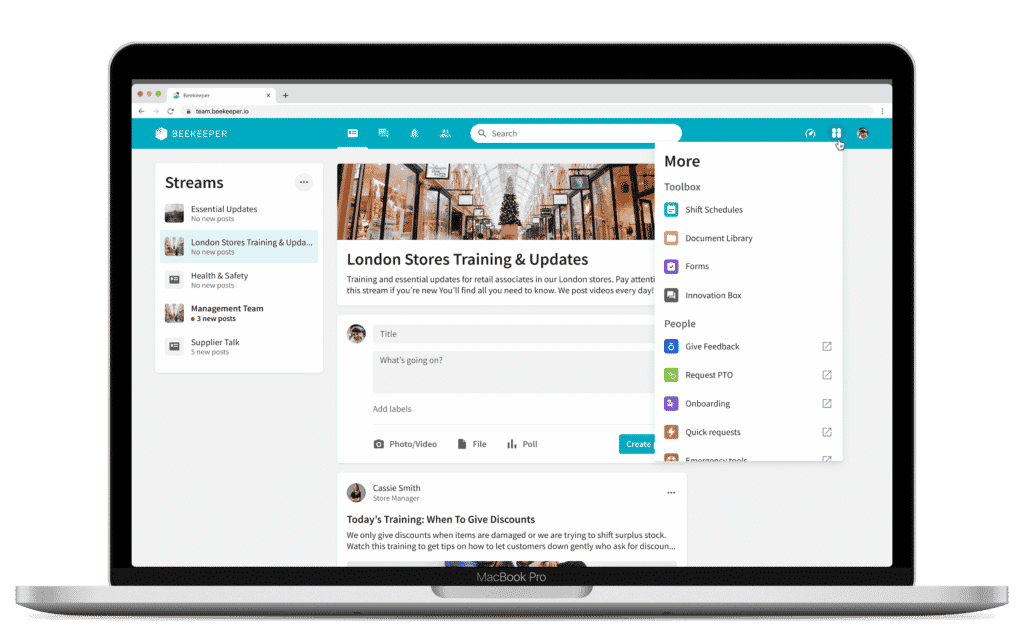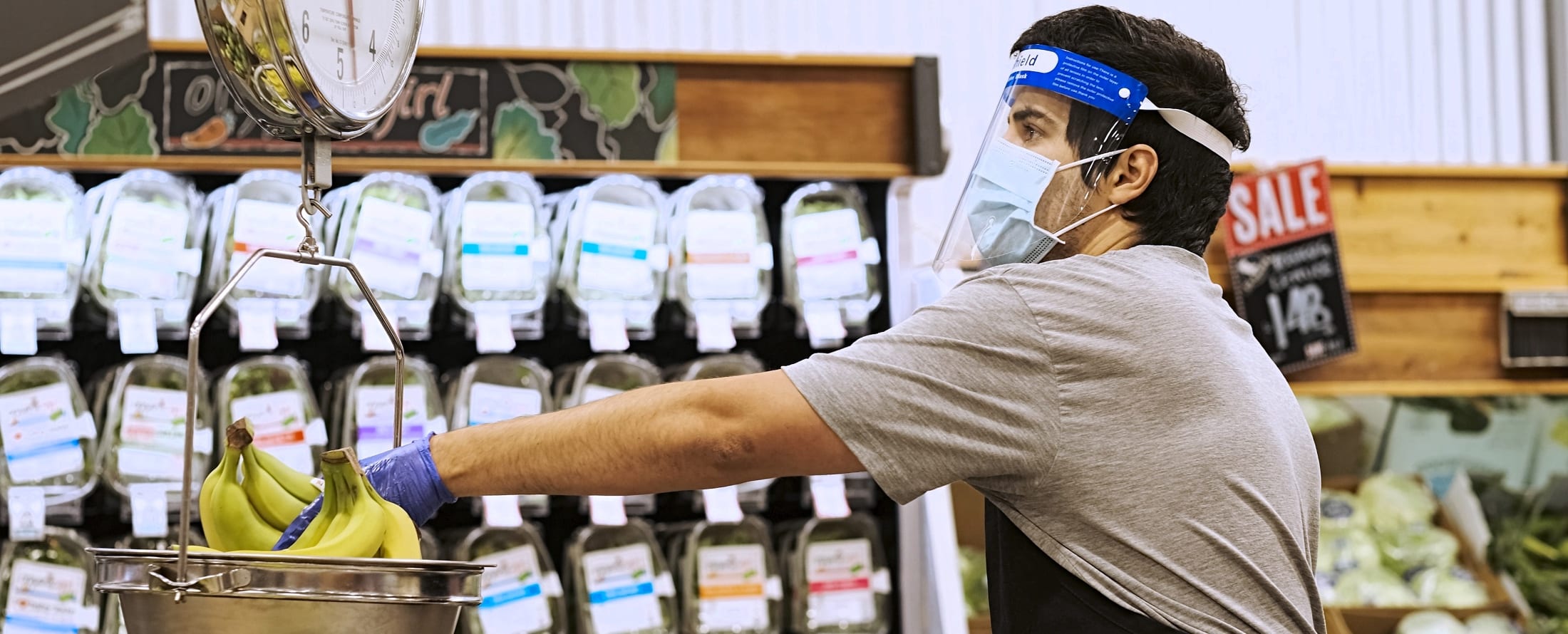COVID-19 has made the retail workplace environment more challenging than ever. Frontline workers in retail have had to adapt to constant changes in operations and safety procedures. Retail companies and managers must overcome the current supply chain disruptions while making sure their employees are safe.
A centralized communication system helps both frontline retail workers and managers overcome these challenges. In this system, everyone in the company has access to one, secure platform that stores all documentation and allows for instant, real-time communication.
This kind of platform gives workers all the information they need to do their jobs so that they don’t have to waste time searching for it. Frontline workers spend an average of three hours each week looking for information. Those three hours could be better spent prioritizing more important tasks. With a digital workplace, retailers can give their frontline employees this valuable time back.
Keep reading to discover why using a centralized platform benefits the company’s bottom line, increases worker well-being, and boosts customer satisfaction.
1. Increase Productivity
Frontline retail workers have a lot to keep track of shift schedules, guidelines, checklists, inventory details, and more.
The right communication platform can eliminate inefficiencies and:
- Reduce absenteeism by giving workers mobile access to their shift schedules
- Eliminate miscommunication with real-time, two-way messaging
- Give retail employees immediate access to product information to provide better customer service to shoppers
Beekeeper has been able to successfully help retail companies centralize their documentation, make daily operations more efficient, and ultimately improve their bottom line. With Beekeeper, all employees have a digital toolbox where they can see shift schedules, documents, forms, and company updates:

2. Better Adaptability
COVID-19 has made effective retail communication more critical than ever before.
The constant changes in safety regulations and consumer behavior have taken a toll on frontline retail workers. These essential employees need the right tools in order to adapt to and overcome these challenges.
Many retail companies are using email as one of those tools. But email for frontline employees may not be the best option in retail, since most associates are working out on the store floor or behind a register, without easy access to email.
With Beekeeper, retail companies can onboard employees and keep them informed without requiring an email address.
One natural foods grocer was able to cut their email volume down by 90% and engage the 70% of employees that were not previously active on email – all with the help of Beekeeper.
3. Faster Feedback Loops
Frontline workers in retail have firsthand insight into customers’ needs and behaviors. These workers know what makes for a successful customer experience. By setting up communication channels that encourage feedback from employees, retail companies can capitalize on that insight.
Listening to and implementing feedback also signals that these suggestions from your workforce are valued. Employees will be more motivated to contribute ideas on how to improve the customer experience and workplace productivity.
4. Better Customer Service
Improving the customer service experience in retail starts with keeping employees well-informed, both about their own workflows and product information customers might ask for.
When employees don’t have to worry about what their task list looks like or where they’re scheduled to be, they can dedicate their full attention to helping customers.
Having access to product information is an effective way to empower frontline staff. As their product knowledge grows, they’re better able to resolve issues. Workers can then relay information about the experience to management so that the company can better adapt to what customers want.
5. Safer Work Environment
Regulations about safety procedures are shifting constantly during the pandemic. Retail companies have to stay on top of these changes and update their own policies accordingly.
A company app is an effective way to communicate company-wide policy changes instantly. When workers feel like they’re getting the most up-to-date information, it shows that the company is invested in their well-being and is proactive about their safety.
As certain sectors within retail are experiencing higher demand for workers, companies have to make sure their communication strategy can scale. For example, big box grocery chains have had to rapidly expand their workforces, while adhering to changing health regulations at the same time.
For grocery retailers, a company app is critical for making sure employees get real-time updates about safety information. And because the app is mobile, the platform can scale to function effectively no matter how many new hires join the company.
The Bottom Line
Retail workers are put under more pressure than ever to deliver the same level of service while juggling new information and worrying about their own health. Companies need a scalable way to connect their people, policies, and processes to make sure the workplace is safe yet efficient.
A centralized communication platform gives retail employees the tools they need to overcome the challenges brought on during the pandemic.
With a company app, frontline employees in retail can access key information about policies, products, and workflows to stay productive and deliver better customer service.







